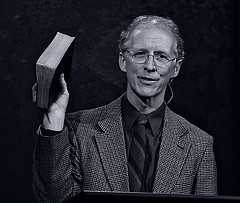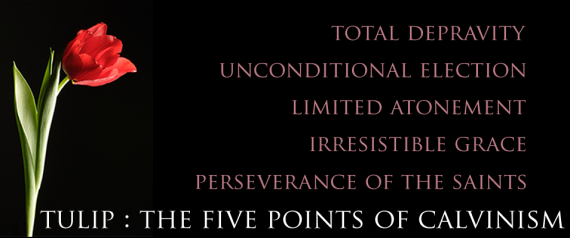What does Jesus want you to do more than anything else?
Share this post on Facebook of course. Or Tweet about it.
Better yet, do both!

I’m kidding!!!
I like when people share my stuff on Facebook and Twitter, but that’s not why I write.
I write:
- To learn what I think (I learn by organizing my thoughts through writing)
- To learn from you (through the comments)
- To pass on to other learners what I have learned from other teachers (2 Timothy 2:2)
For me, these three things are are how I measure “success.”
Thanks for reading this blog and for all you have taught me over the years!




 There is wide disagreement among Calvinists about reprobation, which is sometimes referred to as double predestination.
There is wide disagreement among Calvinists about reprobation, which is sometimes referred to as double predestination.

 As such, this predestination is composed of two parts: election and reprobation. Election refers to God’s choice of whom He will redeem, regenerate, and grant eternal life, while reprobation refers to God’s choice of whom He will leave to remain in sin, condemnation, and everlasting destruction.
As such, this predestination is composed of two parts: election and reprobation. Election refers to God’s choice of whom He will redeem, regenerate, and grant eternal life, while reprobation refers to God’s choice of whom He will leave to remain in sin, condemnation, and everlasting destruction. Election refers to God’s choosing whom to save. It is unconditional in that there is no condition man must meet before God chooses to save him. Man is dead in trespasses and sins. So there is no condition he can meet before God chooses to save him from his deadness (Piper,
Election refers to God’s choosing whom to save. It is unconditional in that there is no condition man must meet before God chooses to save him. Man is dead in trespasses and sins. So there is no condition he can meet before God chooses to save him from his deadness (Piper, 

 So if people are totally depraved (see the link list below) so that they cannot even believe in Jesus for eternal life or respond positively to God in any way, then God must unilaterally give eternal life to certain people.
So if people are totally depraved (see the link list below) so that they cannot even believe in Jesus for eternal life or respond positively to God in any way, then God must unilaterally give eternal life to certain people.


 The final theological ramification of Total Depravity is the idea that regeneration precedes faith.
The final theological ramification of Total Depravity is the idea that regeneration precedes faith.








 Beyond even this, however, the idea that faith is a work, and therefore a work of God in the heart of the unbeliever is “a theological fiction which cannot be supported from Scripture” (Kevin Butcher, “A Critique of The Gospel According to Jesus,” JOTGES 2 [Spring 1989], 38). The Bible everywhere contrasts faith and works so that if one attempts to accomplish something by faith, it cannot be said to have been done by works, and vice versa.
Beyond even this, however, the idea that faith is a work, and therefore a work of God in the heart of the unbeliever is “a theological fiction which cannot be supported from Scripture” (Kevin Butcher, “A Critique of The Gospel According to Jesus,” JOTGES 2 [Spring 1989], 38). The Bible everywhere contrasts faith and works so that if one attempts to accomplish something by faith, it cannot be said to have been done by works, and vice versa.



